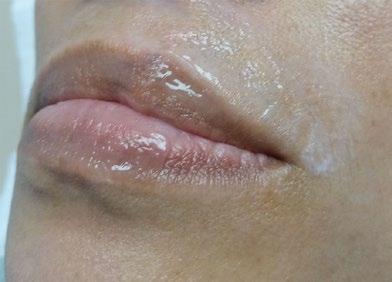
2 minute read
Immune Boosting Tips to Stay Well This School Year
by Alicia McKelvey, MD


Returning to school can be both exciting yet stressful, especially if you or your child has concerns or anxiety about COVID, flu and other illnesses. How do we keep our family healthy and boost confidence in children to return to school?

Try these five tips for boosting immunity.
Add Apples
The old adage, “an apple a day keeps the doctor away” holds some truth. Apples are an excellent source of antioxidants believed to prevent damage to cells and tissues. The apple’s flavonoids and antioxidants can protect from several viral infections and allergens. Eating apples every day may also improve lung function and prevent lung damage.
Eat The Rainbow
Beyond apples, a variety of colored fruits and vegetables provide the body with nutrients and minerals to function optimally and support immunity. Spinach is packed with vitamin A, antioxidants and beta-carotene to support our infection-fighting ability. Broccoli has fiber, vitamins A, C and E, plus antioxidants. Nuts and seeds like sunflower seeds and almonds not only have vitamin E, but contain healthy fats. Did you know that one ounce of red bell pepper has more vitamin C than an ounce of orange? Herbs like rosemary, oregano, cinnamon and clove have antimicrobial properties to fight off bacteria and viruses.
Get Your Vitamin D
You may have heard that sunlight is important for helping our bodies make vitamin D, which is important for healthy bones. But did you know that vitamin D is needed for a healthy immune system? Research has shown that vitamin D has both antimicrobial and anti-inflammatory properties. Foods highest in vitamin D include fish like salmon, mackerel and sardines. Egg yolks, red meat and liver also are high in vitamin D. Some foods are fortified with vitamin D like orange juice, dairy products and non-dairy milks.
Adequate sun exposure and vitamin D also help your moods. Getting out into nature can lower rates of depression and stress, and improve self-esteem and confidence. This offers you the opportunity to be more active and keep your muscles strong, which promotes a healthy immune system. In the northern hemisphere, getting enough vitamin D from food and sunlight can be challenging, so you may need to take a vitamin D supplement to get an adequate amount.

Zinc Up
If you’re deficient in zinc, you may be more susceptible to pathogens. Zinc supports multiple aspects of the immune system, from the barrier of the skin to gene regulation within lymphocytes, a type of white blood cell, to production of immunoglobulins and even DNA replication. It functions as an antioxidant and can stabilize membranes, thus preventing viruses and bacteria from entering your body. Foods such as pumpkin seeds, oysters, oats, lean beef, chickpeas, black beans and cashews are all high in zinc.




Prioritize Your Zzz’s
Adequate sleep is essential to a healthy body. During sleep, your immune system releases proteins called cytokines, some of which need to increase when you have an infection, inflammation or are under stress. Sleep deprivation may decrease production of these cytokines. In addition, infectionfighting antibodies and cells are reduced during periods when you don’t get enough sleep. How much sleep do you need to bolster your immune system? The optimal amount of sleep for adults is seven to eight hours of good sleep each night. Teenagers need nine to 10 hours. School-aged children may need 10 or more hours of sleep. Therefore, it’s important to practice good sleep hygiene and establish regular bedtimes for children, with ideally no technology an hour before bed.
Alicia McKelvey, MD is Board-certified in Integrative Medicine and is Medical Director of Medicine for Living in Woodbury, CT, a personalized, precision healthcare clinic using DNA technology to prevent, heal and reverse disease. Connect at 203-405-1464 or MedicineforLivingCT.com. See ad, page 16.










